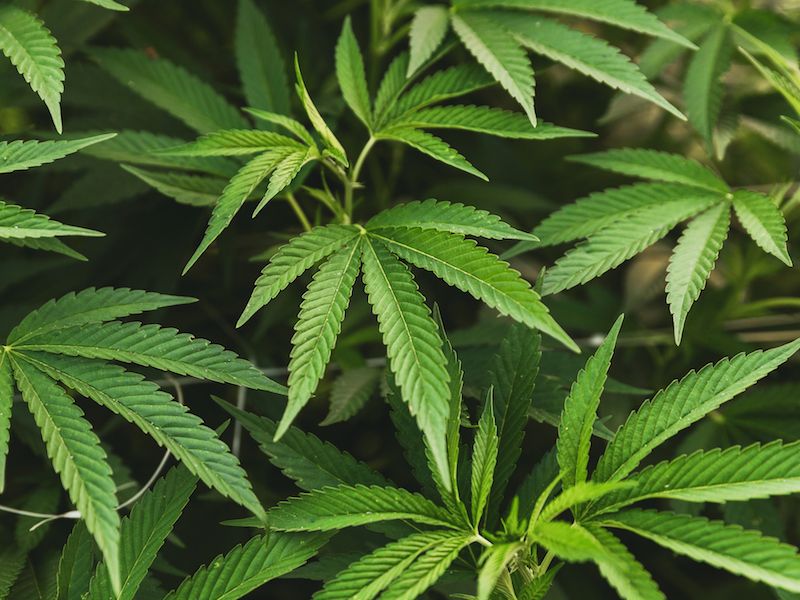
Public opinion about marijuana and cannabinoids have transformed remarkably over the past several decades. Many states now permit the use of marijuana, THC, or cannabinoid compounds for medicinal applications. Not as many states have legalized pot for recreational uses, but even that would have been unthinkable even just a decade ago.
Cannabinoids are classified as a group of compounds found in the cannabis or marijuana plant. New things are being uncovered about cannabinoids every day in spite of their recent legalization in some states. We often consider these particular substances as possessing universal healing qualities, but established research implies there might also be negative impact such as a strong link between cannabinoid usage and the development of tinnitus symptoms.
There Are Numerous Kinds of Cannabinoids
Today, cannabinoids can be used in many forms. It isn’t just weed (or ganja, or refer…..ok, there are a lot of nicknames for marijuana so let’s move ahead). Oils, mists, pills and other forms of cannabinoids are currently obtainable.
The forms of cannabinoids available will vary state by state, and under federal law, many types are still illegal if the THC content is more than 0.3%. So it’s still normal for people to be very cautious about cannabinoids.
The issue is that we don’t yet grasp much concerning some of the long term side effects or complications of cannabinoid use. One example is the new information about how cannabinoids impact your hearing.
Cannabinoids And Your Hearing, Some New Research
A wide range of ailments and medical conditions are believed to be helped by cannabinoids, whatever you want to call it. Seizures, nausea, vertigo, and more seem to be helped with cannabinoids, according to anecdotally available evidence. So researchers decided to see if cannabinoids could help with tinnitus, too.
Tinnitus might actually be caused by cannabinoid use, as it turns out. According to the research, over 20% of study participants who used cannabinoid products documented hearing a ringing in their ears. And these participants had never had tinnitus symptoms before the study. What’s more, marijuana users were 20-times more likely to report having tinnitus symptoms after 24 hours.
Added research indicated that marijuana use could aggravate ear-ringing symptoms in those who already deal with tinnitus. In other words, there’s some very strong evidence that tinnitus and cannabinoids don’t really mix all that well.
How Cannabinoids Make Tinnitus Worse
There are a couple of tangible ways in which cannabinoids can make your tinnitus experience worse. First off, the incidents of tinnitus symptoms can become more frequent, you may notice the buzzing or ringing in your ears more persistently. Also, your bouts of tinnitus can become more extreme when you’re using cannabinoids. More intense ringing that can be harder to dismiss can be the result.
Cannabinoids have also been found to lead to the onset of tinnitus symptoms. Or, said another way: after you begin using cannabinoids you could develop tinnitus symptoms even if you didn’t have them before.
It’s Still Not Clear What Causes Tinnitus
We recognize that there’s a connection between tinnitus and certain triggers but we’re still uncertain what the actual root causes are. It’s apparent that cannabinoids can have an effect on the middle ear and symptoms of tinnitus. But what’s causing that impact is much less obvious.
But we recognize that marijuana use, in contrast to other mood altering substances like alcohol, can cause tinnitus.
Of course, we will keep doing research. People will be equipped to make a practical choice regarding which of the many forms of cannabinoid to choose as we obtain deeper insight into their link to tinnitus.
The Miracle Cure Beware
There has definitely been no lack of marketing hype surrounding cannabinoids in recent years. That’s partly because perceptions are transforming about cannabinoids (and, to an extent, is also an indication of a desire to move away from opioids). But this new research makes it clear that cannabinoids can and do bring about some negative consequence, specifically if you’re concerned about your hearing.
You won’t be able to steer clear of all of the cannabinoid fanatics and evangelists out there, the marketing of cannabinoids has been especially aggressive.
But tinnitus and cannabinoids are clearly linked based on this research. So no matter how much advertising you see for CBD oils, if you’re concerned about tinnitus, you should probably steer clear of them. It’s worth being cautious when the connection between cannabinoids and tinnitus has been so solidly established.